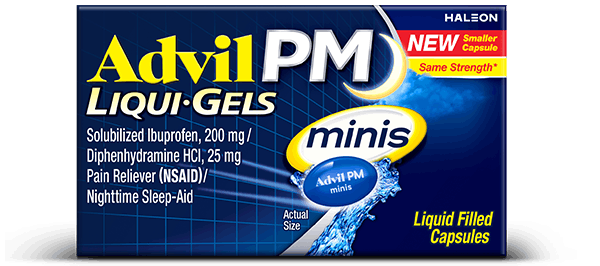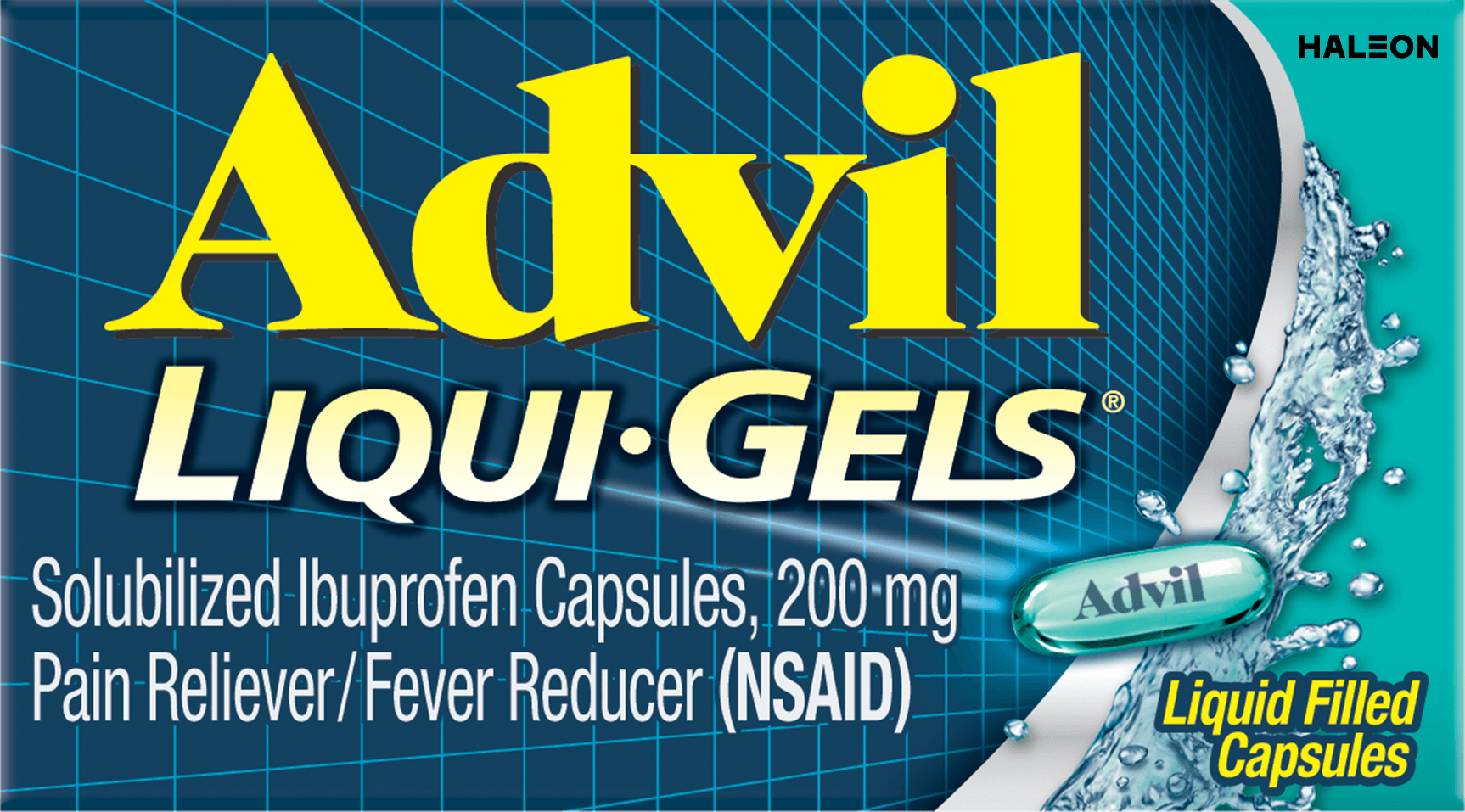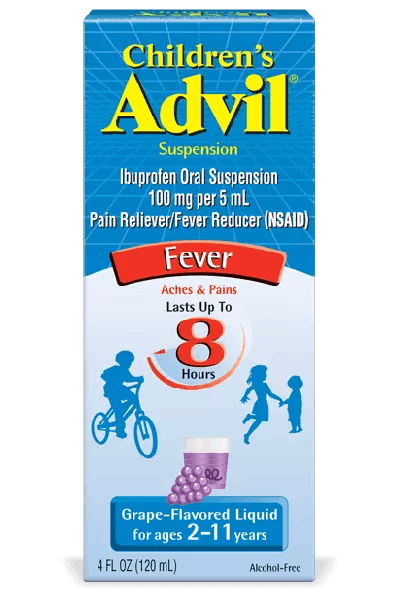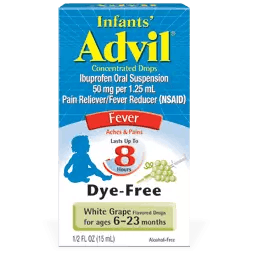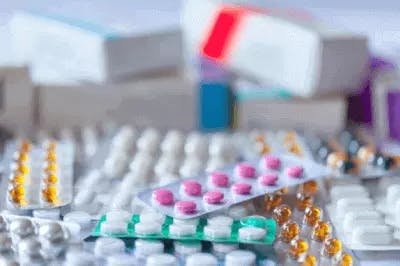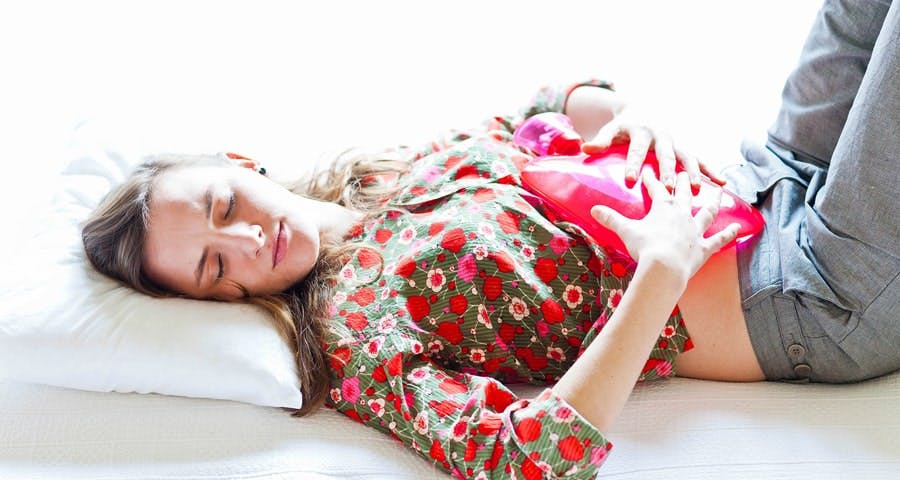What Is PMS?
Menstrual Pain
If you experience symptoms of PMS, you’re not alone. While symptoms vary from person to person, many women struggle with PMS. Luckily, there are ways to help manage the symptoms. Learn about what PMS is, what causes PMS, and PMS treatment options.
What Is PMS?
PMS is a term many of us are familiar with. Whether one of your friends mentioned it casually in a conversation, or you came across the term while flipping through your favorite magazine, this phrase has probably crossed your radar at one point or another. But what is PMS exactly, and how do you know if you have it? The American College of Obstetricians and Gynecologists defines PMS as the physical changes and/or mood changes a women experiences during the days before menstruation.i If you notice changes in how you feel before you get your period, and these changes happen month after month, you’re probably experiencing PMS.
Before we talk about what causes PMS and common symptoms, let’s break down what the word “PMS” actually means. “PMS” is an acronym for “premenstrual syndrome.” As you might already know, “pre” is a prefix that means “before.” Combine that with “menstrual,” and we have (more or less) the definition of PMS: a syndrome that you experience before you menstruate.
What Causes PMS?
The cause of PMS is not exactly clear. However, experts believe it has to do when fluctuating hormone levels.ii Estrogen and progesterone—two hormones that play a role in menstruation—rise and fall throughout the course of your cycle. If your body is sensitive to these hormonal fluctuations, you may experience PMS. Other suggested causes of PMS include metabolism changes, low blood sugar, progesterone allergies, and psychogenic factors.iii However, more research still needs to be done on the topic.
PMS isn’t caused by any physical or mental conditions, but it can exasperate the symptoms of conditions you already have. If you have any pressing concerns about PMS or other types of period pain you’re experiencing, consult your doctor for advice.
What Are Common Symptoms of PMS?
PMS symptoms vary from woman to woman. Not only will symptoms vary, but so will the severity. Some women may experience symptoms strong enough to where they need to stay home from work for the day. Other women have very mild symptoms, or even no symptoms at all. However, the majority of menstruating women have experienced some form of PMS during their lifetime. Studies estimate that as many as 3 out of every 4 menstruating women have faced PMS symptoms. Here are some common PMS symptoms women experience:
- Tension or anxiety
- Depression
- Irritability or anger
- Appetite changes
- Food cravings
- Change in libido
- Joint or muscle pain
- Headache
- Fatigue
- Bloating
- Breast tenderness
- Constipation or diarrhea
- Alcohol intolerance
- Acne flare-ups
- Insomniaiv
The list of PMS symptoms is pretty long. But while PMS encompasses a variety of symptoms, most women only experience a few. If your PMS symptoms feel like they’re too much to manage, get in touch with your doctor for help and support.
PMS Treatment
While PMS certainly isn’t fun to deal with, there a few ways to help treat the symptoms. Here are some things you can do to help relieve PMS symptoms:v
- Get some exercise. Exercise can help with depression, feeling distracted, and fatigue, which are common symptoms of PMS. Yoga might be a good form of exercise to try for PMS, especially if you’re dealing with stress.
- Eat a healthy diet. You may notice yourself craving unhealthy foods before your period, such as sweet or salty snacks. Do your best to resist and eat fruits and veggies, healthy fats, and protein-rich foods to help you feel your best.
- Get plenty of rest. PMS might make you feel more fatigued than usual. Don’t feel guilty about sleeping in a little more than usual, or squeezing in a quick cat nap in the afternoon. Sleep can help support your health and alleviate PMS symptoms.
- Consider supplements. Some studies show that supplements such as Calcium, vitamin B6, and magnesium may help with PMS symptoms. Before you begin any supplement, be sure to talk to your doctor to make sure it’s okay.
We hope you’ve gained a better understanding about what PMS is, what causes PMS, and how to manage the symptoms.
Sources
i Premenstrual Syndrome (PMS). ACOG. https://www.acog.org/patient-resources/faqs/gynecologic-problems/premenstrual-syndrome. Accessed 7/17/2020. Referenced text is highlighted in on page 2, paragraph 1 in source PDF.
ii PMS & PMDD. MGH Center for Women’s Mental Health. https://womensmentalhealth.org/specialty-clinics/pms-and-pmdd/. Accessed 7/17/2020. Referenced text is highlighted on page 3, section 3 in source PDF.
iii Premenstrual Syndrome (PMS) | Symptoms & Causes. Boston Children's Hospital. http://www.childrenshospital.org/conditions-and-treatments/conditions/p/pms/symptoms-and-causes. Accessed 7/17/2020. Referenced text is highlighted on page 1, final section in source PDF.
iv Premenstrual syndrome (PMS) - Symptoms and causes. Mayo Clinic. https://www.mayoclinic.org/diseases-conditions/premenstrual-syndrome/symptoms-causes/syc-20376780. Center for Women’s Mental Health. https://womensmentalhealth.org/specialty-clinics/pms-and-pmdd/. Accessed 7/17/2020. Referenced text is highlighted on page 1 and page 2 in source PDF.
v Premenstrual syndrome (PMS). Women’shealth.gov. https://www.womenshealth.gov/menstrual-cycle/premenstrual-syndrome. Accessed 7/17/2020. Referenced text is highlighted on page 3 and page 4 in source PDF.
By clicking the link(s) above, you will be taken to an external website that is independently operated and not managed by Haleon. Haleon assumes no responsibility for the content on the website. If you do not wish to leave this website, do not click on the links above.
